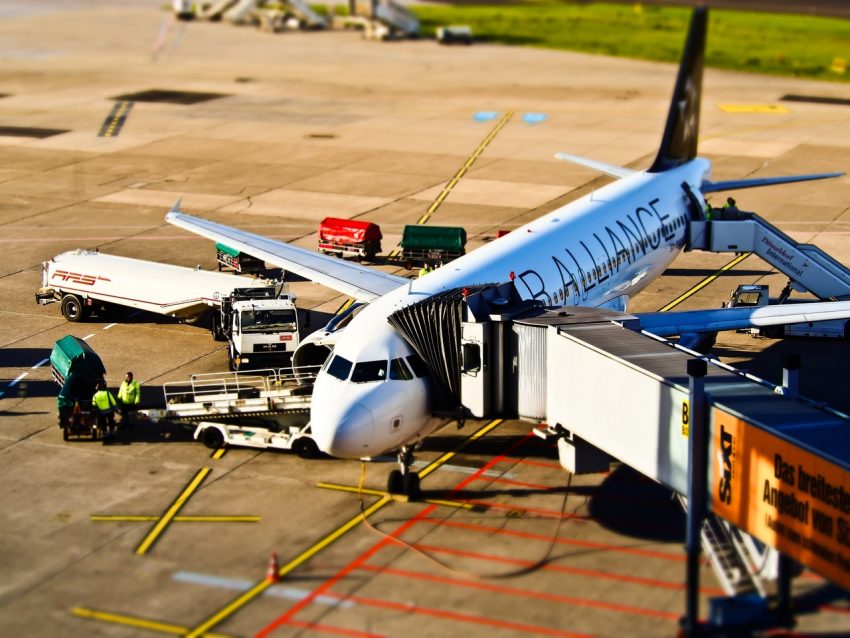The worldwide boom in air transport is increasing connectivity, providing jobs and boosting economies. As with most economic growth, however, more air transport generates more waste. The need for sustainability and counteracting climate change is making effective waste management systems at airports invaluable. But one of the more complex aspects of this often gets overlooked: airside waste.
[blockquote text=”Airside waste is especially troublesome given the numerous types and different regulations for processing it” text_color=”#004361″ show_quote_icon=”yes”][vc_separator type=’transparent’ position=’center’ color=” thickness=’5′ up=” down=”]
Complexity of Airside Waste
A lot of waste is generated landside at airport terminals from food vendors, retail shops, offices and passengers passing through. The waste flow from aircraft, maintenance, various apron operations and airside terminal activities can be just as large. Airside waste is also more complex.
Airside waste management is difficult for airports in that, as local entities, they are subject to local regulations while the waste is generated by others, often internationally, and collected and processed by multiple third parties. Many countries have strict regulations for international waste, and airports must comply. Whilst airports may have little control over the waste generated, they can control the process (pdf).
More Waste, More Airside Traffic
Airside waste is especially troublesome given the numerous types and different regulations for processing it. It can include anything from general and sanitary passenger waste from airlines to leaky baggage or food and other items confiscated by Customs, dead animals from the airfield, paper and general waste from airside offices, absorption materials from fire control, and oil filters, aerosols and other possibly hazardous materials from assorted maintenance activities.
When airside entities organise their waste disposal process individually, it creates extra safety risks such as foreign object debris and unnecessary movements on the apron. A centrally organised collection process, for example, could offer more efficiency and control and lower costs for all parties with collective volume contracts. The system could also charge the heaviest polluters/users more to incentivise recycling, better sorting and waste reduction.
Waste Management System
The challenge for an airport in improving sustainability in the area of waste is defining a waste management system that can comply with local regulations while coordinating different waste flows and collection chains across various locations and amongst multiple stakeholders and third parties. To improve its efficiency, the airport must first have a good overview of the current airside waste management situation.
Is the current waste collection location still the most logical choice? If airside waste is collected at multiple locations, would a single location be more efficient given the limited available space and need for control? Or vice versa? Also, techniques for processing sanitary waste, for example, have evolved significantly and the current process for aircraft waste may no longer fit an environmentally-conscious company.
For these types of projects, To70 works together with environmental consultants Witteveen+Bos, combining their 25+ years of waste chain management expertise with our operational knowledge of airport ground operations and data analysis to evaluate and advise on efficient waste flow management. Our global experience with a wide range of airports also provides us with a wealth of best practice knowledge that can be very useful for improving airside waste flow management.
About To70. To70 is one of the world’s leading aviation consultancies, founded in the Netherlands with offices in Europe, Australia, Asia, and Latin America. To70 believes that society’s growing demand for transport and mobility can be met in a safe, efficient, environmentally friendly and economically viable manner. To achieve this, policy and business decisions have to be based on objective information. With our diverse team of specialists and generalists to70 provides pragmatic solutions and expert advice, based on high-quality data-driven analyses. For more information, please refer to www.to70.com.

